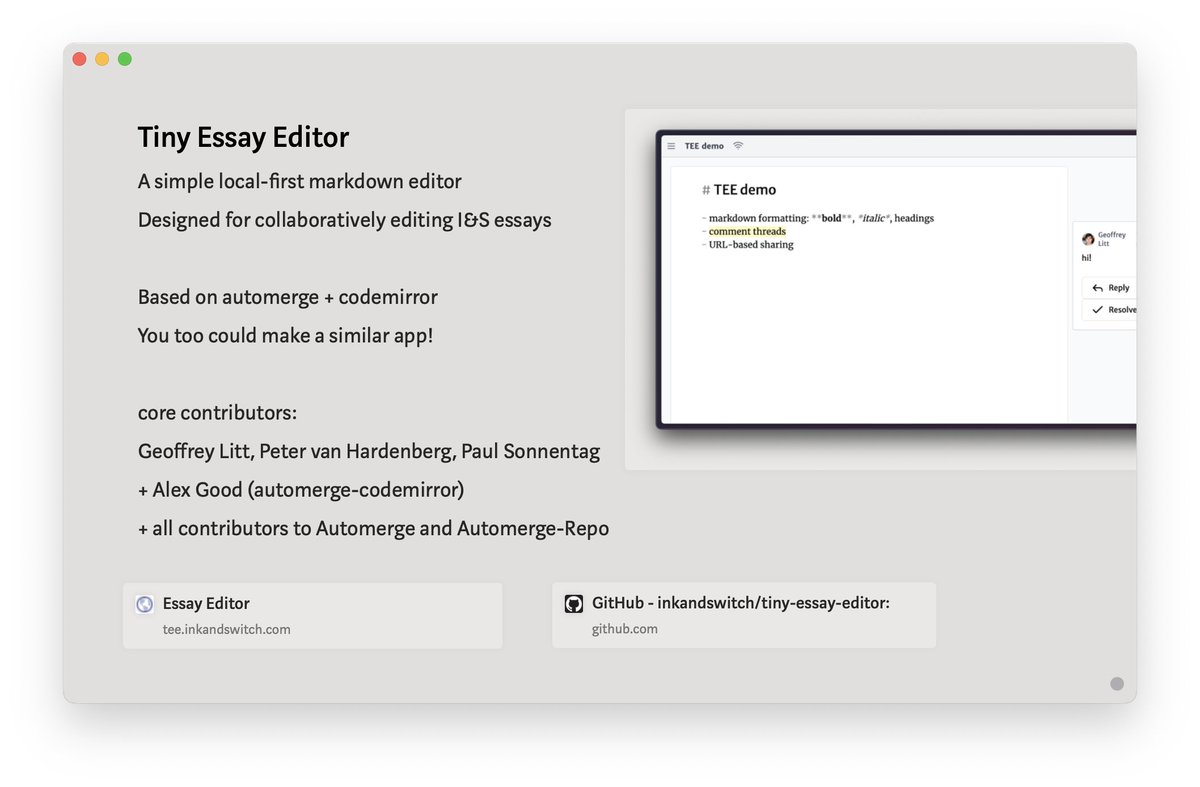I wanted to convert a JSON file of a chat transcript into nice markdown text for sharing w/ people...
so I had GPT generate an ephemeral React UI where I can drag in the JSON file and it outputs the markdown🤓
reflections on the process:
so I had GPT generate an ephemeral React UI where I can drag in the JSON file and it outputs the markdown🤓
reflections on the process:
My first idea was to just have GPT do the conversion itself: paste the JSON in and tell it to output markdown.
Worked fine, but slow, might not work on long transcripts, and hard to know if it's 100% reliable.
Worked fine, but slow, might not work on long transcripts, and hard to know if it's 100% reliable.

Next idea: have GPT generate code to do the task!
Just told it to make a node.js script that outputs "a nice markdown file", didn't bother specifying formatting details
Worked fine on first try. but! annoying to invoke a script in terminal, futz w filenames, etc
Just told it to make a node.js script that outputs "a nice markdown file", didn't bother specifying formatting details
Worked fine on first try. but! annoying to invoke a script in terminal, futz w filenames, etc

Then I realized I really just wanted a GUI where I could drag in the JSON file directly and then copy out the markdown result.
Asked GPT to turn the node.js script into a react app:
Asked GPT to turn the node.js script into a react app:

then I just copy-pasted the react code into @Replit and it worked on the first try :)
replit.com/@GeoffreyLitt/…
replit.com/@GeoffreyLitt/…

this is a terribly simple UI, really just a place to drag a file and run a simple data conversion.
and yet -- I wouldn't have bothered to code it manually. only worth it because it literally took 10 seconds to code both the data conversion and the GUI
and yet -- I wouldn't have bothered to code it manually. only worth it because it literally took 10 seconds to code both the data conversion and the GUI
It’s also neat that I now have this GUI tool and can quickly reach for it whenever I need.
I think ChatGPT w/ plugins could have produced a similar UX for a single conversion, but wouldn’t have left me with a solid reusable tool
I think ChatGPT w/ plugins could have produced a similar UX for a single conversion, but wouldn’t have left me with a solid reusable tool
Also, interestingly I haven’t even bothered to read the code.
Just checked a couple example outputs which was enough to give me confidence that it does the right thing
Just checked a couple example outputs which was enough to give me confidence that it does the right thing
Just a tiny, real, useful example of a pattern I’m excited about: personal AI-generated software tools
https://twitter.com/geoffreylitt/status/1637592620888121344
• • •
Missing some Tweet in this thread? You can try to
force a refresh









